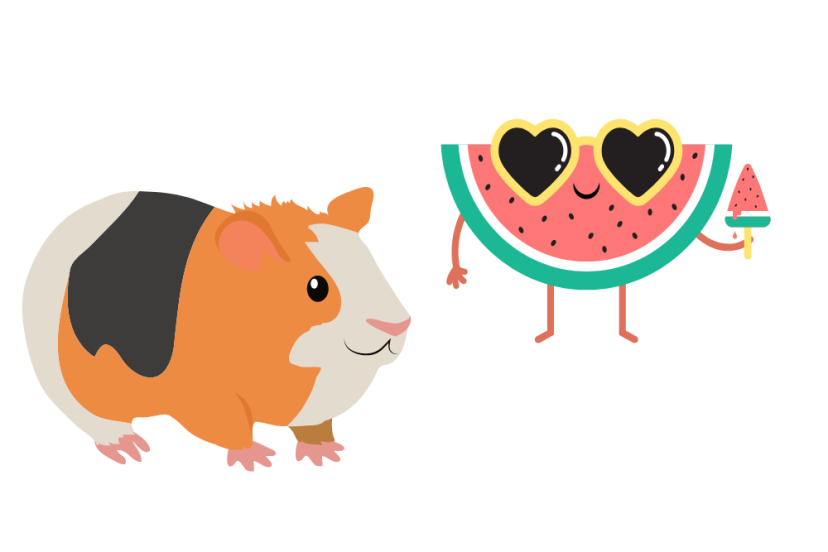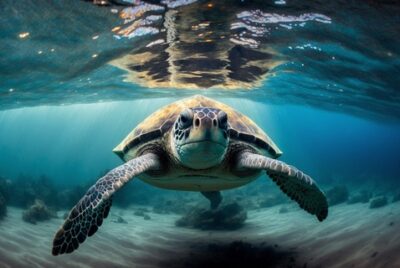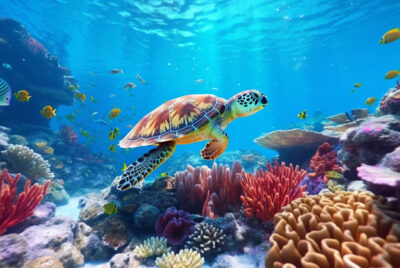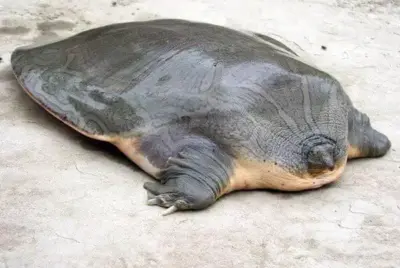Can Guinea Pigs Eat Watermelon? We Take a Deep Dive
Ah, watermelon! That refreshing, juicy delight that most of us love, especially during the warmer months. But what about our furry little pals, the guinea pigs? Can they join in on the juicy joy? Can guinea pigs eat watermelon?
We take a deep dive into everything related to guinea pigs and feeding them watermelon, including nutritional benefits, risks and precautions, and how to safely feed this delicious treat.
The Sweet Allure of Watermelons
The Sweet Allure of Watermelons
Watermelons have been a summer favorite for ages, not just for humans but also for many animals due to their juicy, refreshing nature. However, when considering them for our petite pets, like guinea pigs, it’s essential to delve deeper.
What Makes Watermelons So Tempting?
Nothing beats the heat like biting into a juicy slice of watermelon. Its high water content, coupled with a hint of sweetness, makes it a go-to fruit during hot weather. Not to mention the vibrant red color that’s simply inviting!
Cultural Significance of Watermelons
In many cultures, watermelons symbolize summer, abundance, and prosperity. Festivals and gatherings often feature this fruit, ensuring that everyone gets a taste of summer’s bounty.
A Brief History of the Fruit
Believe it or not, watermelons have a rich history that dates back to Ancient Egypt. Hieroglyphics showcase watermelons being consumed and even offered as a form of tribute.
Watermelons in Modern Day
Today, watermelons are not just eaten fresh. They’re used in smoothies, salads, and even grilled at barbecues. Their versatility and delightful taste make them a staple in many households, especially during the summer months.
What’s Inside a Watermelon?
Primarily made of water, watermelons also contain vitamins such as A, B6, and C, antioxidants, and essential minerals like magnesium.
Nutritional Benefits for Guinea Pigs
As someone who’s deeply fond of guinea pigs, I’ve spent countless hours ensuring my furry friends receive the best nutrition. Watermelons have been a subject of curiosity, and over the years, I’ve discovered the many benefits they can offer to guinea pigs.
1. High Water Content
The first time I gave a small piece of watermelon to my guinea pig, Peaches, I was surprised at how eagerly she nibbled on it. With their 90% water content, watermelons can be an excellent hydration source for guinea pigs, especially during hot summer days.
2. Source of Vitamins
Watermelons are rich in vitamins, especially Vitamin C, which is crucial for guinea pigs. They can’t produce this vitamin naturally. It was during a vet visit that I learned how vital Vitamin C is for guinea pigs. Dr. Johnson, our trusted veterinarian, recommended adding fruits high in this vitamin to their diet, and watermelon was on his list!
3. Beneficial Minerals
Apart from vitamins, watermelons also contain essential minerals like potassium. I remember the excitement in my daughter’s eyes when she did a school project on guinea pig nutrition. She was thrilled to list watermelon as a source of essential minerals.
4. Dietary Fiber
Fiber is essential for a guinea pig’s digestive health. While their primary source of fiber should be hay, the little amount present in watermelon can support their gut health. I recall a time when our guinea pig, Whiskers, had digestive issues. Along with other dietary changes, introducing watermelon occasionally seemed to help him.
5. Low in Calories
Considering how active guinea pigs can be – mine run around their playpen with such gusto – it’s essential to provide them with low-calorie snacks. Watermelon fits the bill perfectly.
Essential Nutrients for Guinea Pigs Found in Watermelons
Watermelons aren’t just a refreshing summer fruit; they are packed with a variety of essential nutrients that can benefit both humans and our furry friends, like guinea pigs. The vitamins and minerals in watermelon can boost the guinea pig’s immune system, ensure a shiny coat, and aid in overall well-being.
Let’s delve into the primary nutrients present in this juicy delight.
1. Vitamin C
Watermelons are a decent source of Vitamin C, an antioxidant that plays a vital role in collagen synthesis and helps protect the body against free radicals. For guinea pigs, this vitamin is especially crucial since, unlike humans, they can’t produce it on their own.
2. Vitamin A
This vitamin is essential for maintaining good vision, skin health, and neurological functions. Found in the beta-carotene of watermelon, it is converted into Vitamin A in the body. It’s essential for a guinea pig’s overall health, ensuring they have clear vision and healthy skin.
3. Potassium
An essential mineral for maintaining proper muscle function and nerve function, potassium also helps regulate fluid balance in the body. In guinea pigs, adequate potassium intake ensures their muscles and nerves function optimally.
4. Magnesium
Magnesium is crucial for muscle and nerve function, bone health, and energy production. Watermelon provides a moderate amount of this essential mineral, beneficial for overall health.
5. B Vitamins
Watermelons contain a mix of B vitamins, especially B1 (thiamine) and B6 (pyridoxine). These vitamins are vital for energy metabolism and the proper functioning of the nervous system. For guinea pigs, they support overall vitality and energy.
6. Dietary Fiber
Though fruits aren’t the primary source of fiber for guinea pigs (that honor goes to hay), watermelon does offer some dietary fiber. This helps support a healthy digestive system by promoting regular bowel movements and healthy gut flora.
7. Antioxidants
Apart from Vitamin C, watermelons contain other antioxidants like lycopene, which gives them their red color. Lycopene has been linked to various health benefits, including reduced risk of chronic diseases and protection against free radicals.
8. Water Content
One of the standout nutrients in watermelon is not a vitamin or mineral but the water itself. With a water content of around 90%, watermelons are incredibly hydrating. This high hydration level can be especially beneficial during the hot months, ensuring that the guinea pig remains hydrated and cool.
Incorporating watermelon into a balanced diet, considering all its nutritious offerings, can be a delightful and beneficial treat, not just for us but also for our adorable guinea pigs.
Precautions and Potential Concerns
However, as with most treats, there are certain precautions to take when feeding your guinea pig watermelon.
Ah, watermelon – a summertime favorite! While we humans can easily indulge in its juicy sweetness, when it comes to our guinea pig pals, there are a few cautionary points to consider.
Here’s a rundown on potential concerns and precautions when offering this treat to your cavy.
1. Sugar Content
Even though watermelon is naturally sweet and doesn’t contain any added sugars, the fructose it contains might be a concern. Guinea pigs have a digestive system that’s best suited for low-sugar, high-fiber diets. Overfeeding watermelon can lead to obesity and diabetes in the long run.
2. Diarrhea and Stomach Upsets
The high water content in watermelons, while being hydrating, can lead to diarrhea in guinea pigs if consumed in large amounts. It’s essential to monitor your pet after introducing any new food to its diet to ensure it doesn’t develop soft stools or other digestive issues.
3. Pesticide Residue
If you’re not buying organic watermelons, there’s a chance they might carry pesticide residues on their skin. Since you might be feeding the soft rind to your guinea pig, always ensure you wash the fruit thoroughly or, better yet, opt for organic choices.
4. Choking Hazard
The seeds in watermelons can pose a choking hazard for guinea pigs. Always ensure you’re feeding them seedless varieties or have taken the time to remove all seeds from the slices you offer.
5. Limited Nutritional Value
While watermelon offers hydration and certain vitamins, it doesn’t provide the nutritional completeness that a guinea pig requires. Hay, fortified guinea pig pellets, and certain vegetables should still constitute the bulk of their diet.
6. Potential Allergies
Though rare, some guinea pigs might be allergic or overly sensitive to certain foods. When introducing watermelon, or any new food for that matter, it’s a good idea to start with small amounts and observe for any allergic reactions.
7. Overfeeding Concerns
Treats should be just that – treats. Even if your guinea pig seems to have an insatiable appetite for watermelon, it should be given in moderation. Too much of a good thing can quickly turn problematic. This in turn can harm both your guinea pig’s health and increase the cost of owning a guinea pig.
Serving Watermelon the Right Way
It’s one thing to know that guinea pigs can eat watermelon, but another to ensure that it’s served in the best way possible for our guinea pigs health and ensuring they live a long, healthy life.
1. Fresh is Best
Always offer your guinea pig fresh watermelon. Avoid giving them any part that looks rotten, moldy, or has been sitting out for too long. The last thing we want is for our little buddies to ingest anything harmful.
2. Portion Control
While it might be tempting to give your guinea pig a big juicy chunk, it’s essential to limit their intake. A few small pieces or a thin slice will be more than enough for them. Remember, it’s a treat, not a meal!
3. Wash Before Serving
Even if you’re only serving the inner flesh, always wash the outer rind of the watermelon to remove any potential contaminants, such as pesticides or dirt. When possible, opt for organic watermelons to reduce these risks further.
4. Seedless Varieties
The best kind of watermelon to serve your guinea pig is the seedless variety. If you only have watermelons with seeds on hand, make sure to remove all the seeds before offering it. The seeds can be a choking hazard and might contain compounds not suitable for guinea pigs.
5. Don’t Forget the Rind!
The white part of the watermelon rind, just beneath the green outer skin, can be a crunchy treat for guinea pigs. But ensure it’s free from any chemicals or pesticides. Wash it well, and give them small, manageable pieces.
6. Introduce Gradually
If it’s the first time your guinea pig is trying watermelon, start slow. Offer a tiny piece and see how they react. It’s crucial to monitor them and ensure they don’t develop any digestive issues or allergies.
7. Avoid Any Additives
While we might love our watermelon with a sprinkle of salt or mixed into a fruit salad with other ingredients, always serve watermelon plain to your guinea pig. They don’t need any added sugars, salts, or seasonings.
8. Storage Matters
If you have leftover watermelon, ensure it’s stored in the refrigerator. When serving it next, let it come to room temperature, as extremely cold foods might not be comfortable for your guinea pig to consume.
9. Monitoring After Feeding
After feeding, always check for any remnants. Leftover watermelon in their cage can attract bugs or mold, which is not safe.
How Often is Too Often?
Ah, the age-old question for guinea pig owners who’ve discovered a treat their furry friend adores: how often is too often? Just like with any indulgence, moderation is essential, especially when it comes to watermelon for your guinea pig.
Let’s dive into understanding the ideal frequency.
1. Treat, Not Staple
Watermelon is a treat, much like how we humans view our favorite dessert. It shouldn’t replace their regular diet of hay, pellets, and other veggies. Imagine if you ate your favorite dessert every day; sure, it sounds fun, but it’s not the healthiest choice!
2. Frequency Recommendations
Generally, offering watermelon once or twice a week in small portions is sufficient. It provides variety in their diet without overwhelming their digestive system. Sticking to this frequency ensures they get the benefits without potential drawbacks.
3. Beware of Overhydration
While watermelon’s high water content is a boon during hot weather, feeding too much can lead to overhydration. This can result in watery stools or diarrhea, which is certainly something we want to avoid.
4. Watching for Sugar Intake
Watermelon, although natural and healthy, is still high in sugars. Frequent feeding can lead to obesity and related health issues in guinea pigs. It’s akin to us consuming sweetened beverages daily; it’s okay occasionally but not every day.
5. Every Guinea Pig is Unique
Just like humans, each breed of guinea pig and individual guinea pig has its own dietary needs and preferences. While some might handle watermelon well, others might be more sensitive. Observing your guinea pig and adjusting based on its reactions is vital.
6. Change is Good
Incorporating a variety of fruits and vegetables ensures a balanced diet. If you’ve given watermelon one day, maybe offer bell peppers or cucumber the next. A diverse diet mimics their natural foraging behavior, keeping things exciting for them.
Observing Your Guinea Pig Post-Feeding
Always keep an eye on your guinea pig after introducing any new food. If you notice any irregularities or changes in behavior, it might be best to consult with a vet.
Can Guinea Pigs Eat Watermelon Conclusion
For the final answer to the question “Can guinea pigs eat watermelon?”: Watermelon can be a refreshing and nutritious treat for your guinea pig in moderation. Ensure it’s seedless, served in small amounts, and always monitor your pet afterward.
Can Guinea Pigs Eat Watermelon FAQs
Can guinea pigs eat watermelon daily?
Just like with other human foods such as apple, grapes, tomatoes, and celery, it’s best to limit it to a couple of times a week to avoid excess sugar intake.
What parts of the watermelon can my guinea pig eat?
The flesh is the most suitable part. Always remove seeds and be cautious with the rind.
My guinea pig doesn’t seem interested in watermelon. Is that normal?
Absolutely! Every guinea pig has its preferences. If they don’t like it, don’t force it.
Can the watermelon rind be harmful?
While not necessarily harmful, it can be tough and challenging to digest. It’s best to stick to the flesh.
How do I store leftover watermelon?
Store any uneaten portions in the refrigerator to maintain its freshness.




